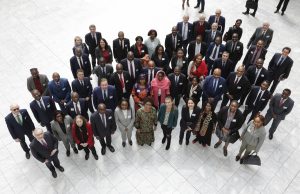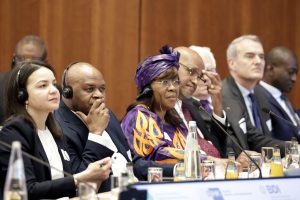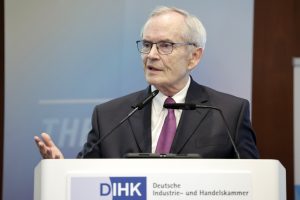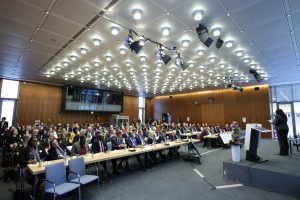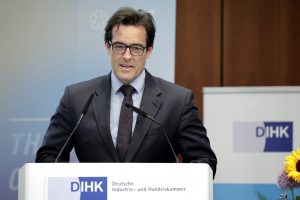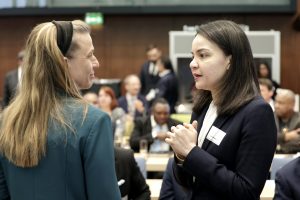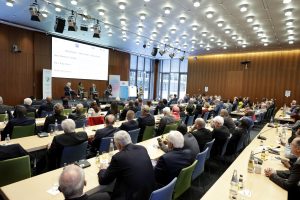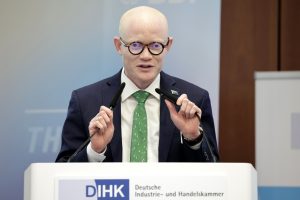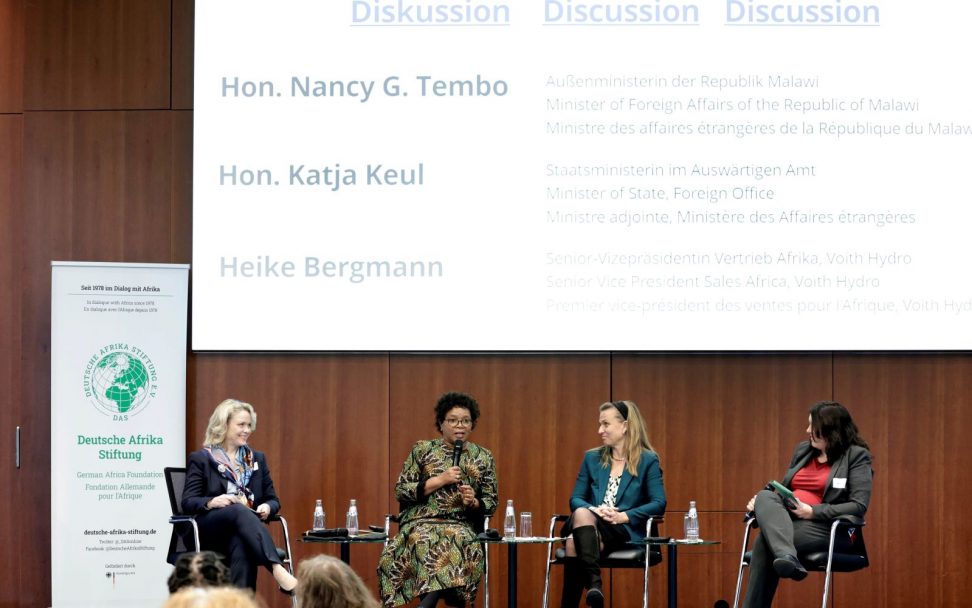
For the second year in a row, the German Africa Foundation and the German Chamber of Industry and Commerce (DIKH), together with the Federation of German Industries (BDI) and the Federation of German Wholesale, Foreign Trade and Services (BGA), hosted a reception in honour of the African Diplomatic Corps at the Haus der Deutschen Wirtschaft. With our panel guests, Hon. Nancy G. Tembo, Foreign Minister of the Republic of Malawi, Katja Keul MP, Minister of State at the Federal Foreign Office and Heike Berg, Senior Vice President Sales Africa, Voith Hydro Holding GmbH & Co. KG, we talked about the potential and future of German-African relations against the background of the changing geopolitical situation as well as the increasing global crises.
After the official part, there was the opportunity for an open and trustful exchange in a friendly atmosphere.
Programme
Welcome
Dr Uschi Eid, President, German Africa Foundation, download speech
Prof Dr Heinz-Walter Große, Chairman of the Sub-Saharan Africa Initiative of German Business (SAFRI)
H.E. Dr Abdallah Saleh Possi, Ambassador of the United Republic of Tanzania
Discussion
Hon. Nancy G. Tembo, Minister of Foreign Affairs of the Republic of Malawi
Katja Keul MP, Minister of State at the Federal Foreign Office
Heike Bergmann, Senior Vice President Sales Africa, Voith Hydro Holding GmbH & Co. KG
Closing remarks
Dr Volker Treier, Head of Foreign Trade, Member of the Executive Board, German Chamber of Industry and Commerce (DIHK)
Moderation
Sabine Odhiambo, Secretary General, German Africa Foundation
